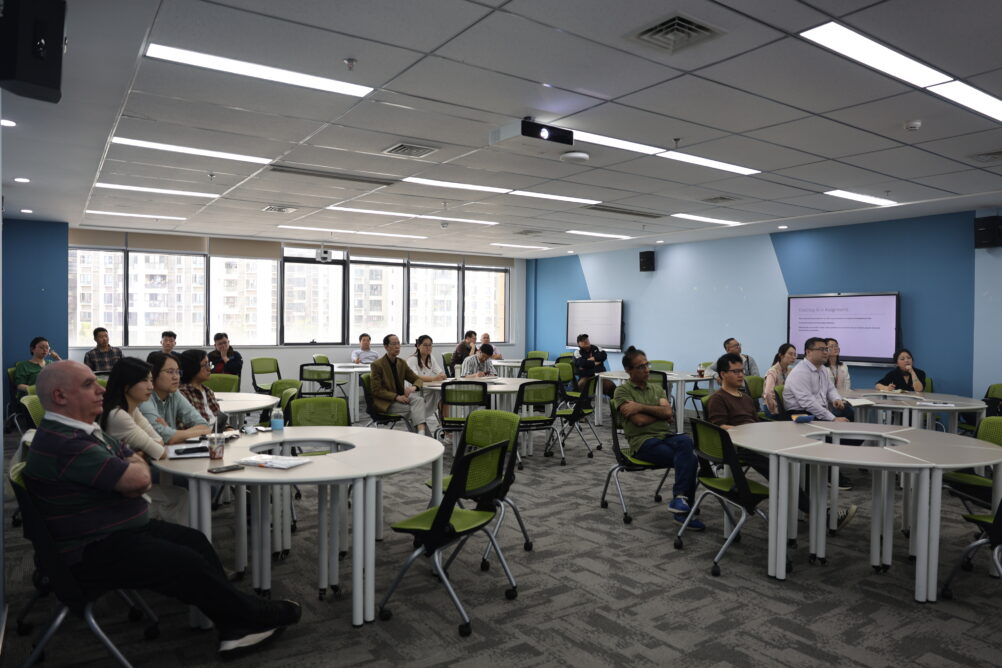Teaching Seminar | How to uphold academic integrity and ethical standards in the use of AI
Published on: March 31, 2025 | Views: 655
On March 27, Sichuan University-Pittsburgh Institute (SCUPI) held a teaching seminar on ” How to uphold academic integrity and ethical standards in the use of AI.” at N209, Jiang ‘an South Campus, focusing on how to use AI in teaching in the era of digital intelligence to enable first-class undergraduate development. The keynote speaker, Dr. Robyn Najar, discussed ethical issues and practical ideas for using AI for learning and assessment with more than two dozen faculty members.
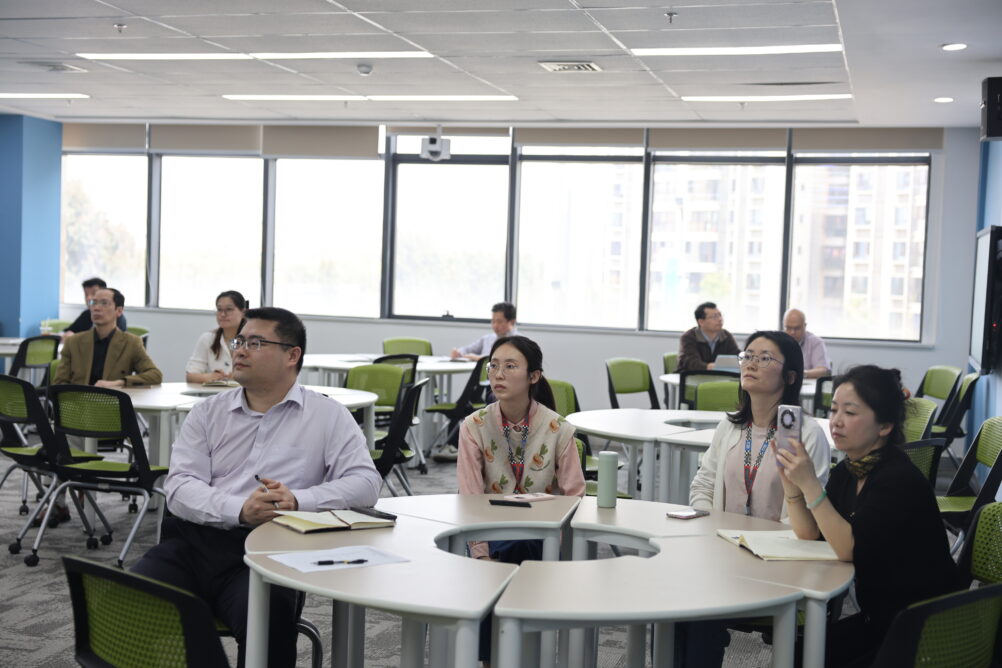
With the continuous development of generative AI products such as ChatGPT, Deepseek, and Kimi, the issue of how to balance the use of AI with teaching ethics has increasingly become a focus of discussion in teaching work. Dr. Robyn Najar first shared the current state of artificial intelligence (AI) development, pointing out that cultivating AI literacy in teachers and students is key to ensuring critical interaction with AI tools. These tools are neutral in themselves, but while they improve teaching efficiency, they also pose ethical risks. Therefore, it is important to think carefully about the appropriate use of AI tools in an ethical framework, to understand the relationship between AI use and academic integrity, and to look at the sources of AI information critically.
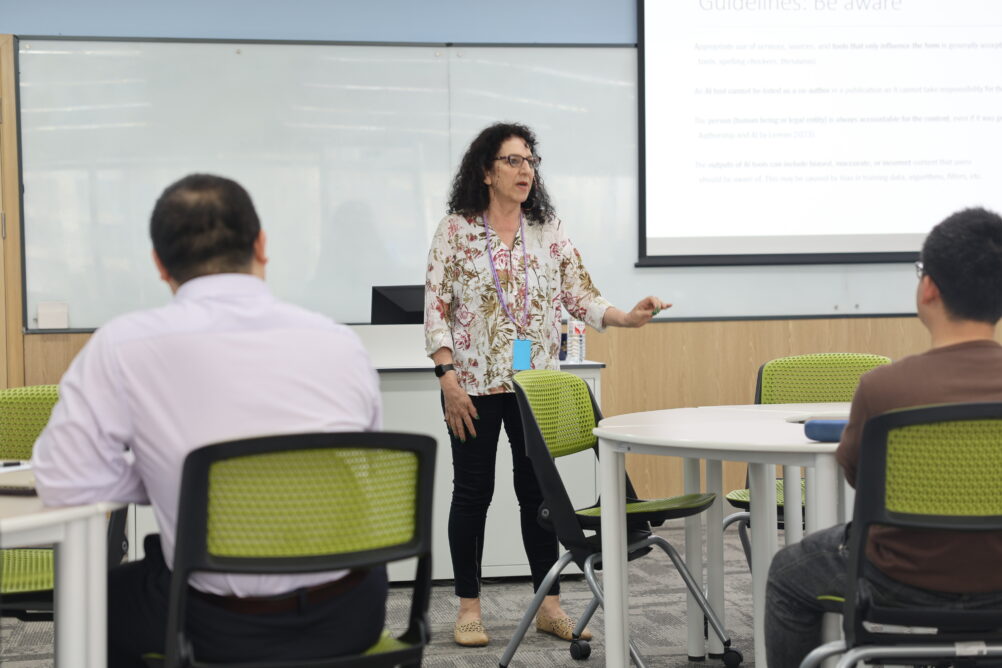
Later, Dr. Robyn Najar provides advice and guidance on how to specifically assess students’ use of AI in teaching. After sharing specific cases generated by students using AI, she stressed that the distinction between learning and assessment should be made clear. AI can help students learn efficiently in many fields, but teachers should establish a completely authentic AI use evaluation system from a higher level, reduce students’ anxiety and cheating motivation through various ways so that they can reflect the actual improvement of their knowledge and ability in reality, and achieve good communication with students on academic integrity commitment.
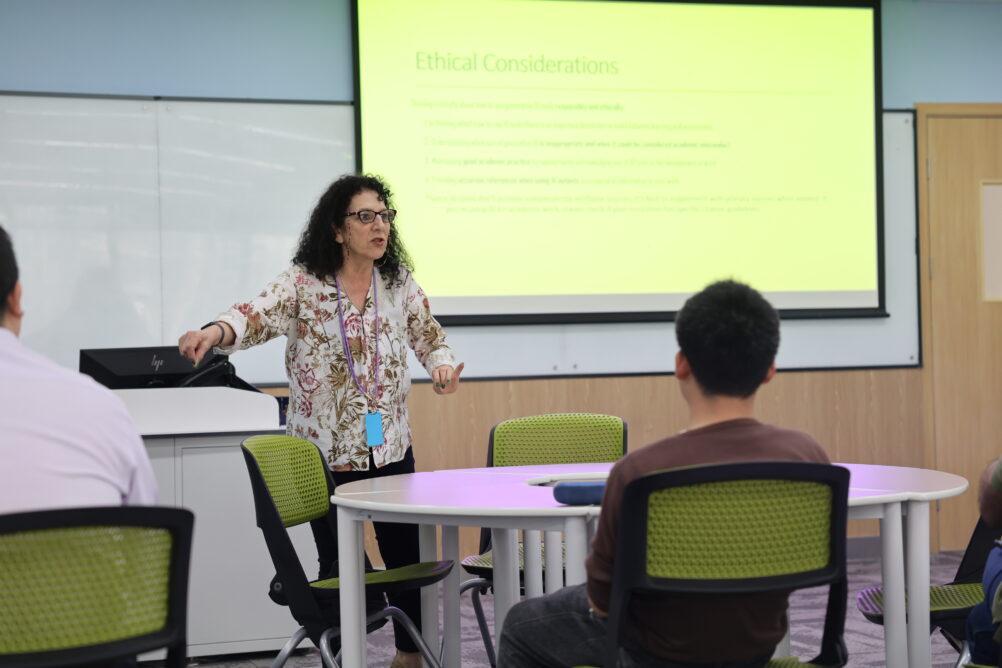
At the end of the seminar, Dr. Robyn Najar called for an open and transparent academic atmosphere through innovation in pedagogy. The participating teachers showed great interest in Dr. Robyn Najar’s sharing and had a heated discussion with Dr. Robyn Najar about their own teaching practices.
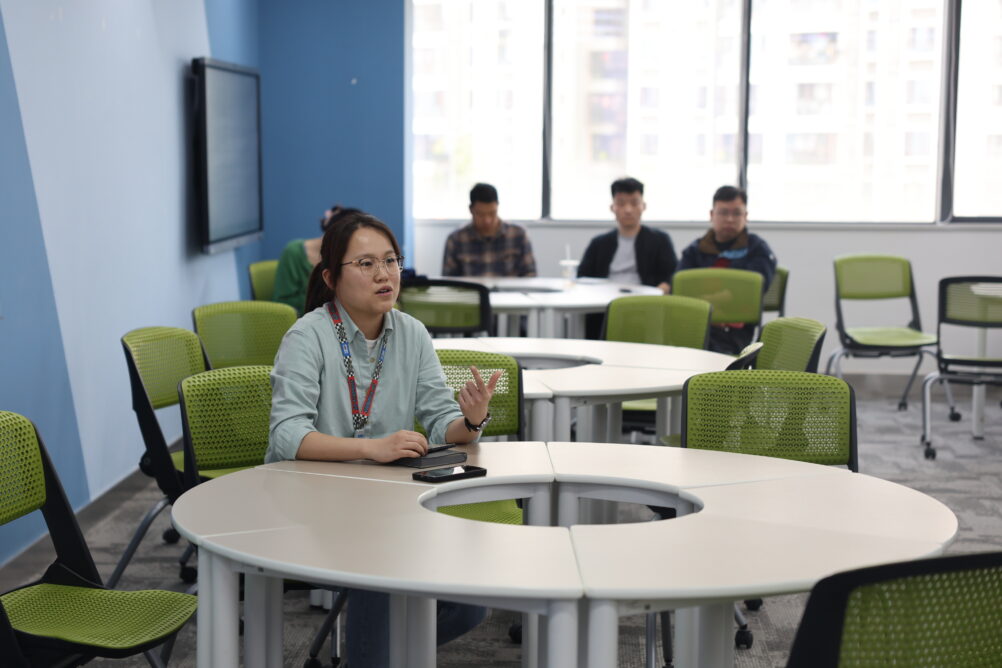
The seminar provided important ideas for the college to cope with the impact of AI technology and launch the teaching assessment of AI and also promoted the transformation of smart teaching under the construction of first-class disciplines.
